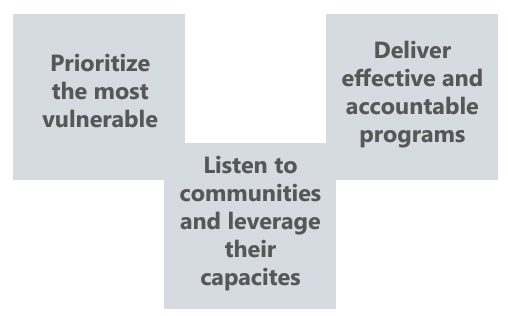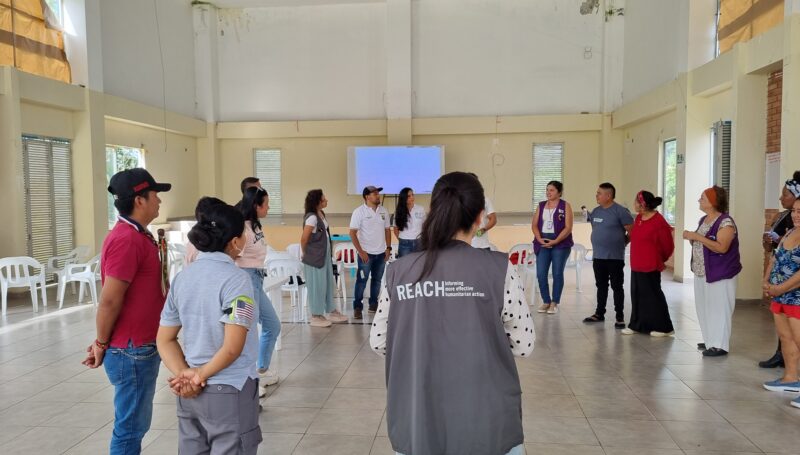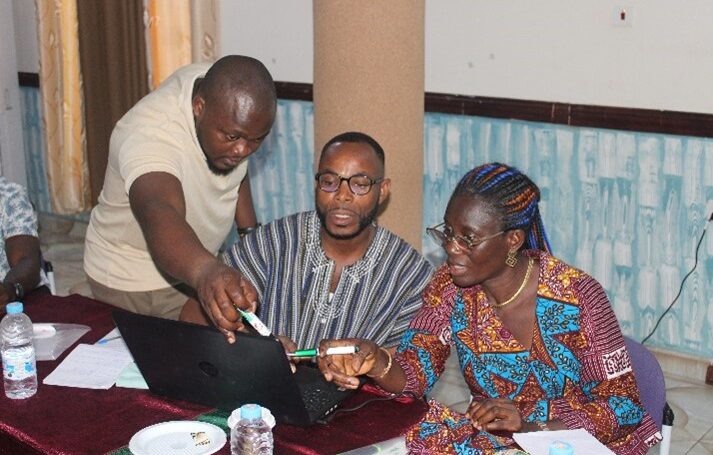Ensuring humanitarian response is grounded in the realities of all populations affected by crisis, requires more than just multi-sectoral analysis —it also requires an inclusive approach. Too often, the needs and priorities of marginalized communities remain overlooked in crisis response, either due to gaps in data collection, lack of capacities, methodological limitations, or the absence of dedicated frameworks for capturing their voices.
At IMPACT, we have long recognized that who is included in data shapes who is visible in decision-making processes. As part of our commitment to fostering a more inclusive and people-centred system, we signed the Inclusive Data Charter (IDC) in 2023 as a key milestone, reinforcing our pledge to produce evidence that reflects the diverse realities of crisis-affected populations. Our Inclusive Data Charter Action Plan 2024-2027 builds on this commitment, setting out concrete steps to advance inclusive data practices across humanitarian needs assessments and analysis, within IMPACT.
The subsequent development of IMPACT’s Inclusive Data Charter Action Plan was done in parallel to the development of the 2025-2030 Global Strategy – thus ensuring that these commitments are sustainable over time and align with IMPACT’s overarching goal.
Bridging the Gaps in Inclusive Data
| Despite significant progress in improving inter-agency data systems—notably through frameworks like the Joint Inter-Sectoral Analysis Framework (JIAF)— gaps remain in ensuring that humanitarian data is fully representative, disaggregated, and people-centered. Too often, methodologies fail to capture the perspectives of those most at risk of exclusion, such as women, older people, people with disabilities, displaced populations, and other minorities. |  |
Through the IDC Action Plan, IMPACT is committing to take steps to strengthen how crisis-affected populations are included in research and data collection processes. Our efforts focus on five key areas:
- Enhancing data disaggregation to better represent all population groups in humanitarian assessments, alongside developing and piloting an intersectional analytical framework.
- Expanding participatory approaches to ensure affected populations actively shape the evidence used for decision-making. This includes implementing more inclusive household-level data collection approaches, developing guidance and toolkits for researching marginalised communities.
- Broadening data sources by integrating qualitative and perception-based research with standards needs assessments. This involves increasing affected populations’ participation in the research cycle, piloting participatory methods, and reviewing the quality and use of self-reported perception data.
- Upholding accountability and safeguarding in all data collection and analysis processes by strengthening safeguarding protocols, developing IMPACT’s Community Feedback Mechanisms SOP and toolkit, and reviewing the M&E framework.
- Building technical capacities to promote inclusive data practices across the sector through technical cooperation with coordination bodies, developing external-facing online courses, and conducting a programmatic review of partnerships with local actors.
Embedding Inclusion at the Core of Humanitarian Decision
Moving beyond technical adjustments, inclusive data must become a core pillar of how humanitarian needs assessments are designed, implemented, and used. This requires a shift in how the sector defines and measures needs, ensuring that the diverse realities of affected people— coupled with multi-sectoral and sectoral frameworks—shape response priorities.
As part of our global efforts, we will continue to implement people-centred approaches, strengthen inclusive research practices, and advocate for a humanitarian data system that is accountable to all populations. By 2030, our goal is to ensure that the data we produce enables more effective, adequate, and people-centred humanitarian action.









